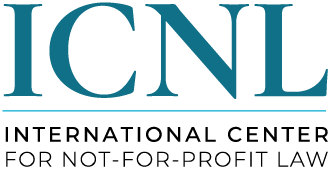The indicators
The data collection methodology previously mentioned is built on the foundation of 12 carefully selected indicators, each comprising specific component measures and constituent factors. The selection of the indicators was informed by the need to capture the diverse dimensions of civic space, including freedom of association, freedom of peaceful assembly, freedom of expression, and the state duty to protect.
The 12 indicators included in the West Africa Civic Space Index are as follows:
Freedom of Assembly:
Assesses the ability of individuals and groups to peacefully assemble without undue restrictions.
Component Measures:
- Legal Framework: Assess the legal regulations governing assembly rights.
- Implementation: Evaluate the enforcement of assembly rights in practice.
Constituent Factors:
- Permit Requirements: Analyse the ease and fairness of obtaining assembly permits.
- Police Response: Assess how law enforcement handles peaceful assemblies.
Freedom of Expression: Evaluates the freedom of speech and media independence in the region.
Component Measures:
- Media Independence: Evaluate the independence and diversity of media outlets.
- Online Freedom: Assess the extent of online censorship and surveillance.
- Public Expression: Evaluate the freedom of the general public to express opinions.
Constituent Factors:
- Journalist Safety: Analyze the safety and protection of journalists.
- Internet Access: Evaluate accessibility to the internet.
- Free Speech Rights: Assess the legal protections for free speech.
- Social Media Freedom: Evaluate restrictions or censorship on social media platforms.
Freedom of Association: Measures the extent to which individuals and organizations are free to form and join associations.
Component Measures:
- Association Regulations: Assess laws and regulations governing associations.
- Registration Process: Analyse the ease and fairness of registering associations.
Constituent Factors:
- Freedom to Form Groups: Evaluate the ability to form and join associations freely.
- Government Interference: Assess government interference in association activities.
Rule of Law and Access to Justice: Examines the presence and enforcement of laws protecting human rights and access to legal remedies.
Component Measures:
- Legal Framework: Evaluate the existence of laws protecting human rights.
- Judicial Independence: Assess the independence and effectiveness of the judiciary.
Constituent Factors:
- Legal Aid Accessibility: Analyse access to legal aid and representation.
- Accountability of Judicial Institutions: Evaluate the accountability of legal institutions.
Political Participation: Assesses the opportunities for citizens to engage in political processes and elections.
Component Measures:
- Electoral Process: Evaluate the fairness and transparency of elections.
- Political Participation Rights: Assess the protection of political participation rights.
Constituent Factors:
- Voter Registration: Analyse the accessibility and fairness of voter registration.
- Political Inclusivity: Evaluate the inclusivity of political processes.
Civil Society Participation in Policy Making: Evaluates the involvement of civil society organizations in shaping policies and legislation.
Component Measures:
- Government Engagement: Assess government engagement with civil society.
- Civil Society Influence: Evaluate the impact of civil society in policy decisions.
Constituent Factors:
- Public Consultation: Analyse the existence and effectiveness of public consultations.
- Civic Engagement: Assess the level of civic engagement in policy discussions.
Human Rights Protection: Examines the presence and effectiveness of measures to protect human rights.
Component Measures:
- Human Rights Legislation: Evaluate the existence of laws protecting human rights.
- Human Rights Enforcement: Assess the enforcement of human rights protections.
Constituent Factors:
- Non-Discrimination: Analyse measures to prevent discrimination.
- Human Rights Violations: Assess reported human rights abuses.
Corruption and Government Transparency: Measures efforts to combat corruption and enhance government transparency.
Component Measures:
- Anti-Corruption Measures: Evaluate legal and institutional anti-corruption frameworks.
- Transparency Initiatives: Assess government transparency efforts.
Constituent Factors:
- Corruption Perception: Analyse perceptions of corruption.
- Access to Government Information: Evaluate access to government data.
Safety of Civil Society Actors: Assesses measures in place to protect the safety and well-being of civil society members.
Component Measures:
- Protection Mechanisms: Assess mechanisms for protecting activists and NGOs.
- Violence Incidents: Analyse incidents of violence against civil society actors.
Constituent Factors:
- Legal Protections: Evaluate legal protections for civil society actors.
- Accountability for Violence: Assess the prosecution of those responsible for violence.
Freedom of Information: Evaluates citizens' access to government information and transparency.
Component Measures:
- Access to Information Laws: Evaluate the existence and effectiveness of such laws.
- Government Data Accessibility: Assess access to government data and information.
Constituent Factors:
- Information Accessibility: Analyse public access to government information.
- Transparency of Public Data: Evaluate the transparency of publicly available data.
Gender Equality and Youth Engagement: Assesses policies and practices promoting gender equality, youth engagement, and inclusivity.
Component Measures:
- Gender Equality Policies: Evaluate policies promoting gender equality.
- Youth Engagement Initiatives: Assess government initiatives involving youth.
Constituent Factors:
- Gender Equality Progress: Analyse progress in achieving gender equality.
- Youth Participation: Evaluate the level of youth participation in civic activities.
Digital Rights: Measures digital freedoms, including internet access, online privacy, and freedom of online expression.
Component Measures:
- Internet Freedom: Assess freedom and restrictions on the internet.
- Data Privacy: Evaluate data protection and privacy regulations.
Constituent Factors:
- Online Censorship: Analyse online censorship measures.
- Data Security: Evaluate data security and protection measures.



